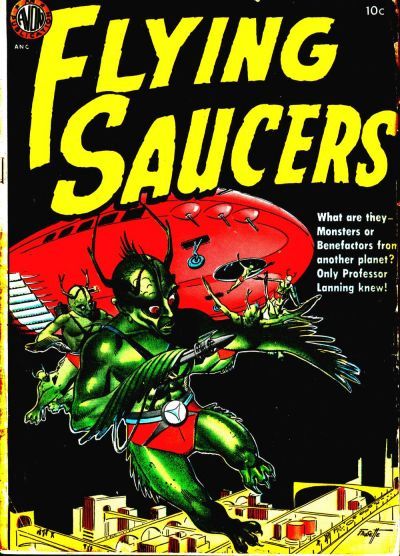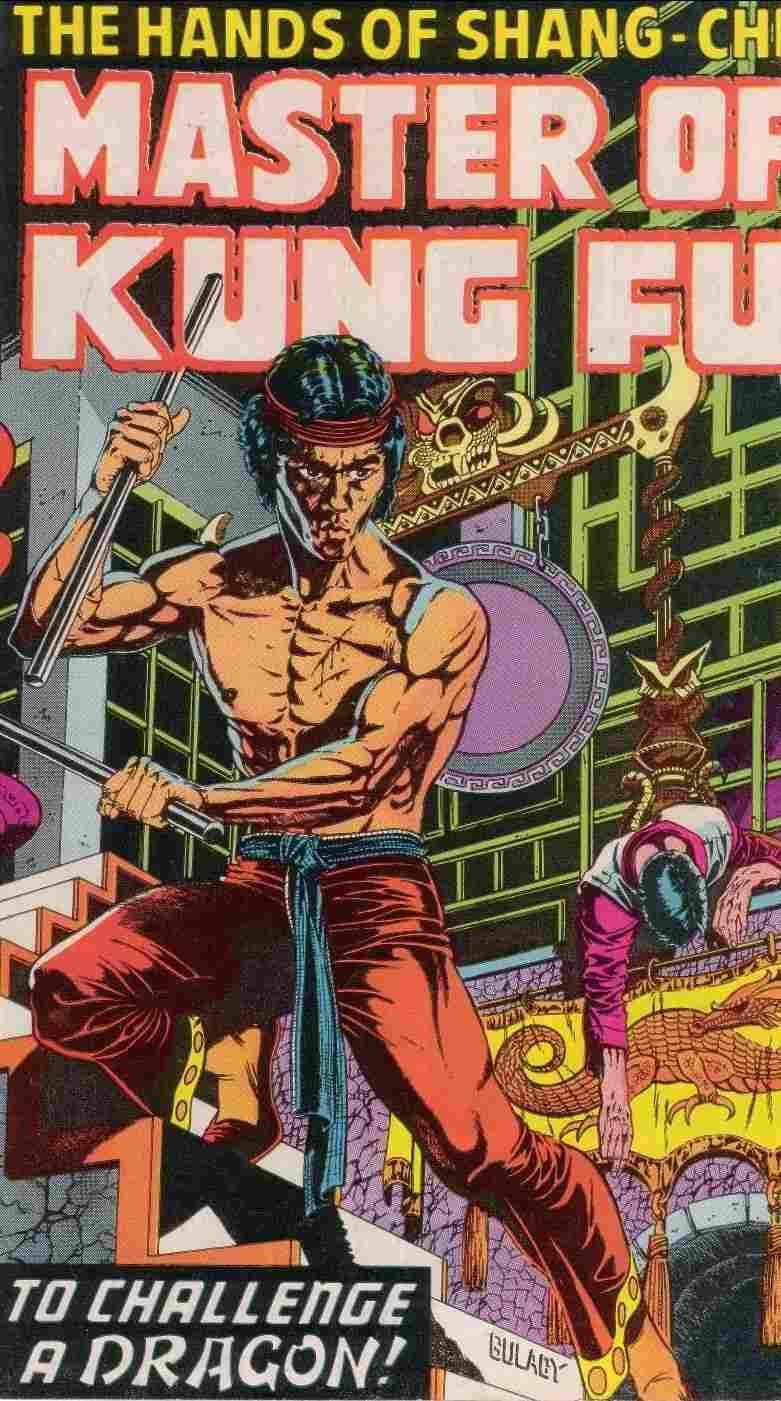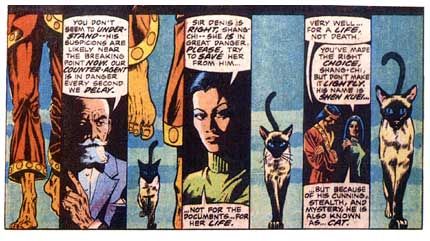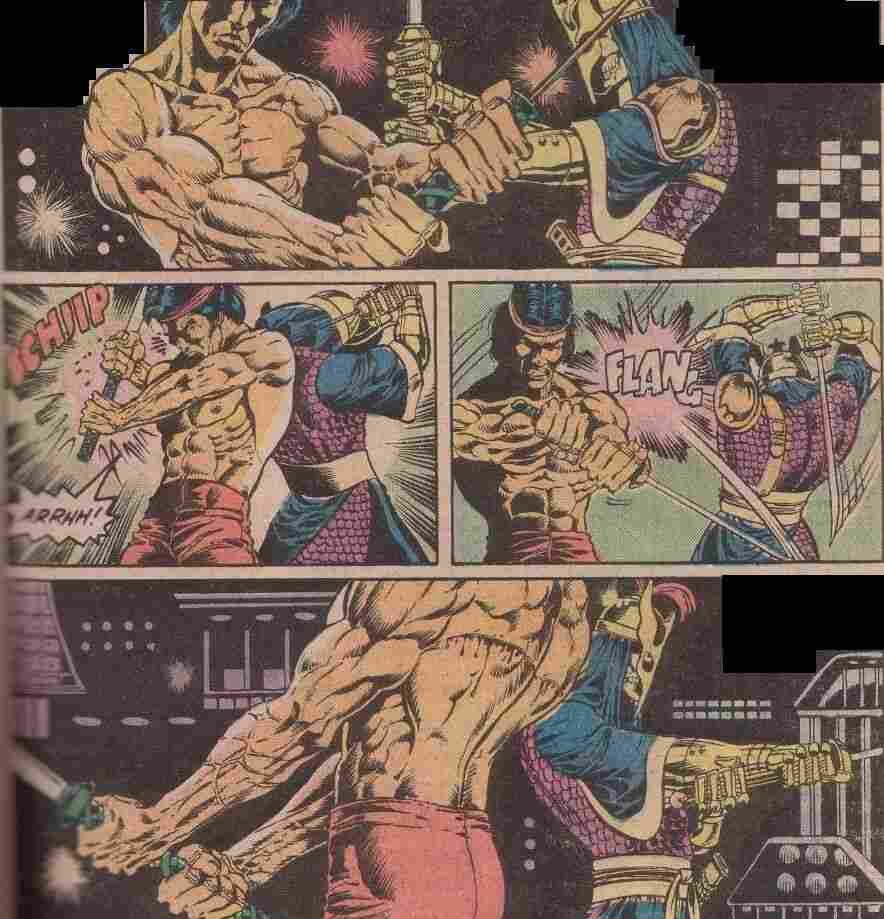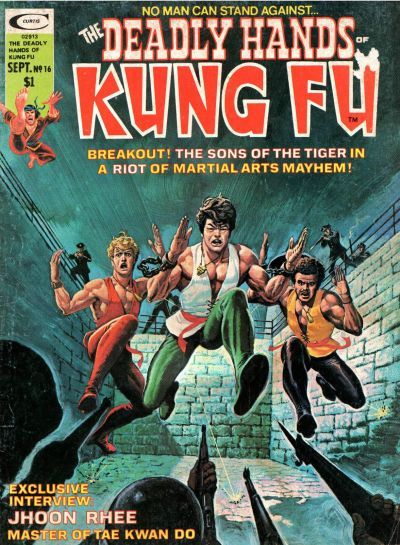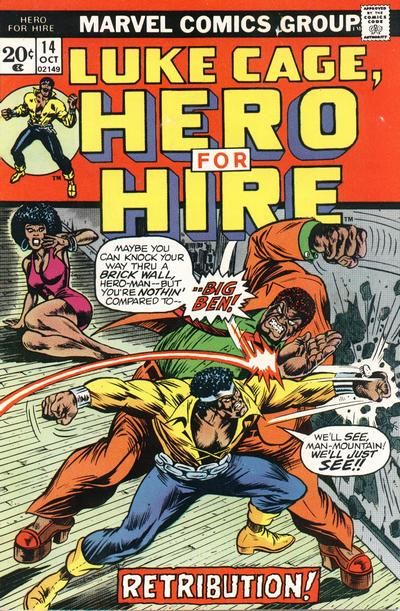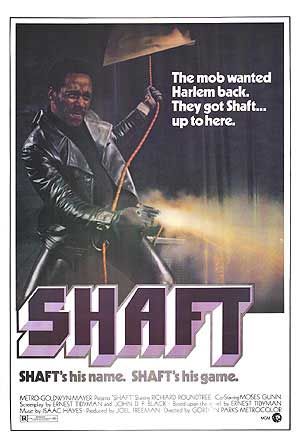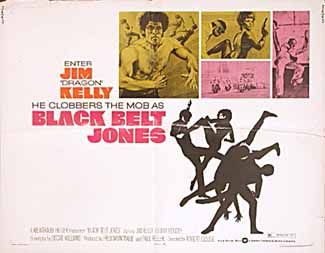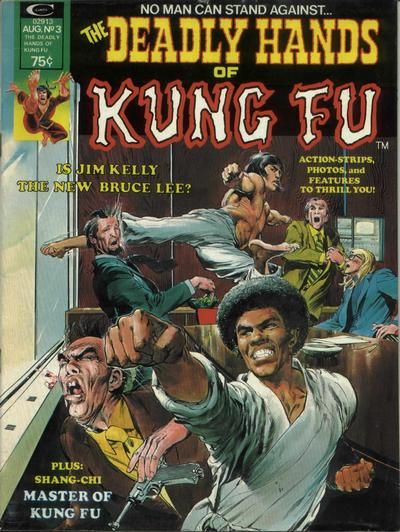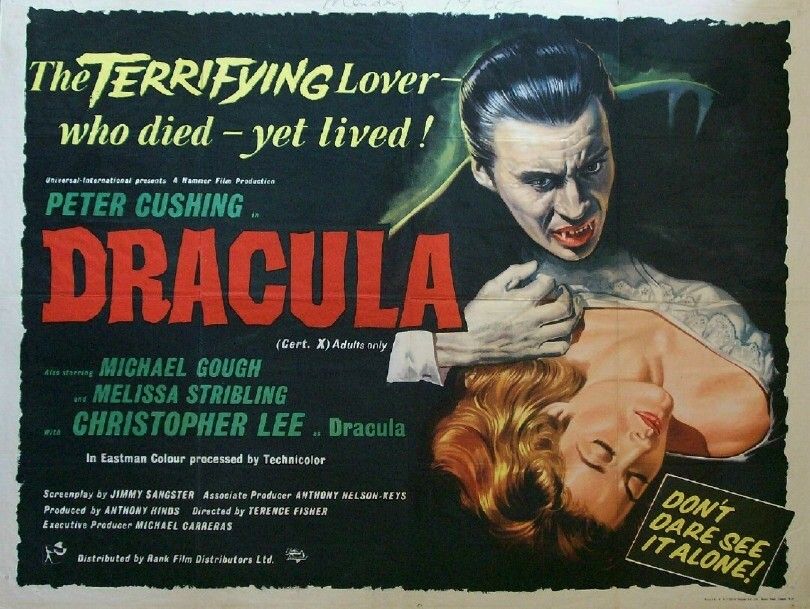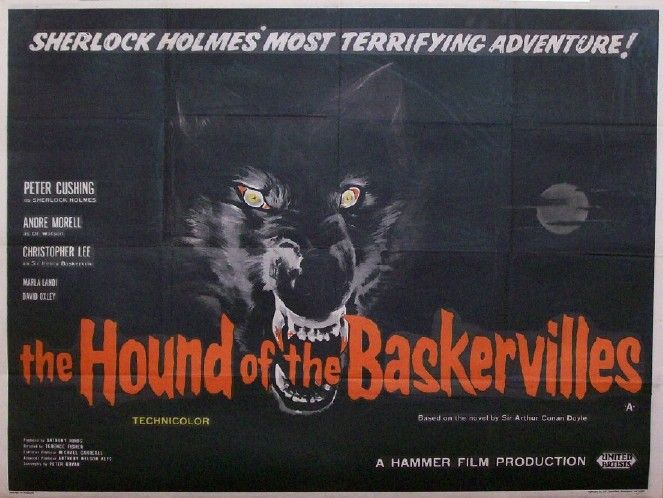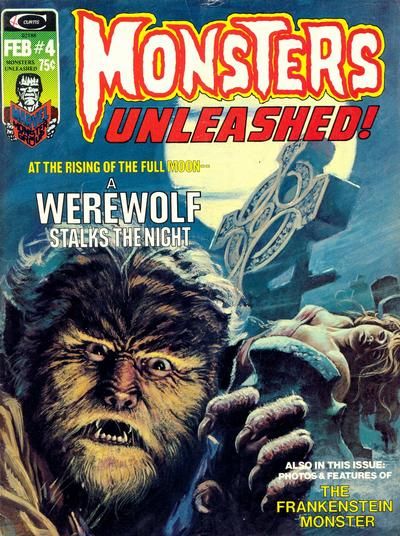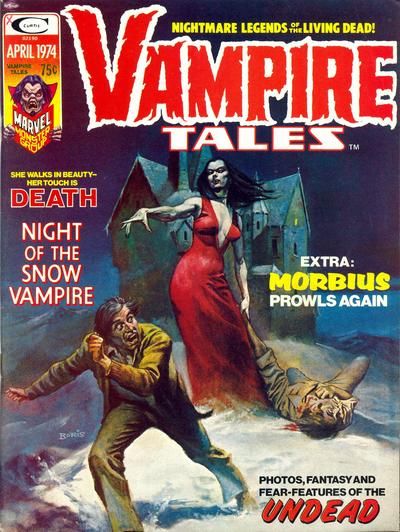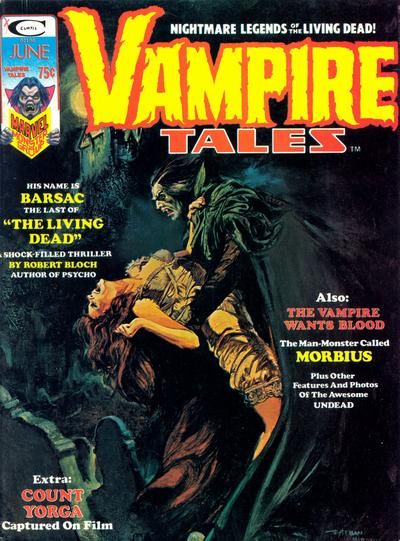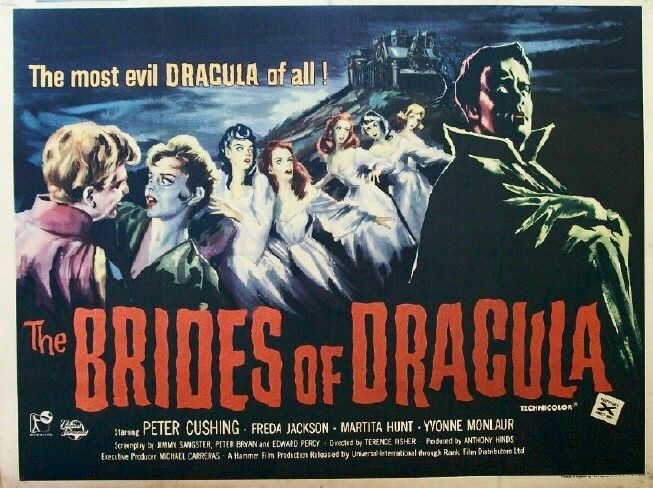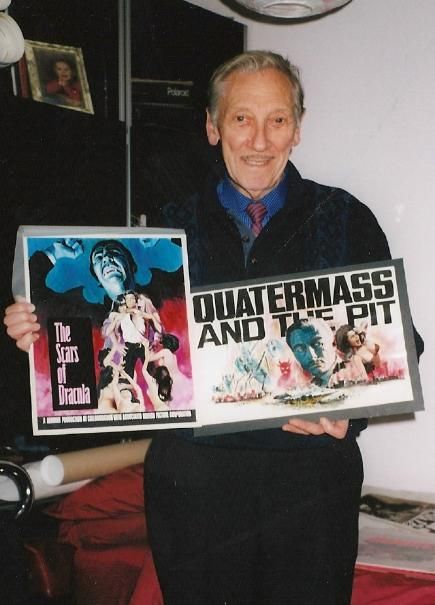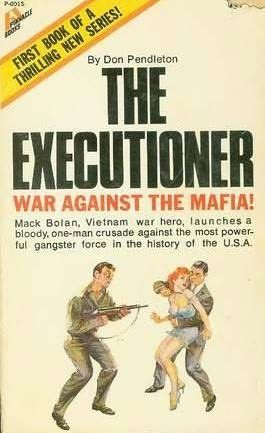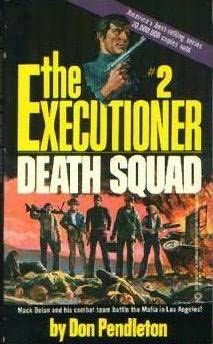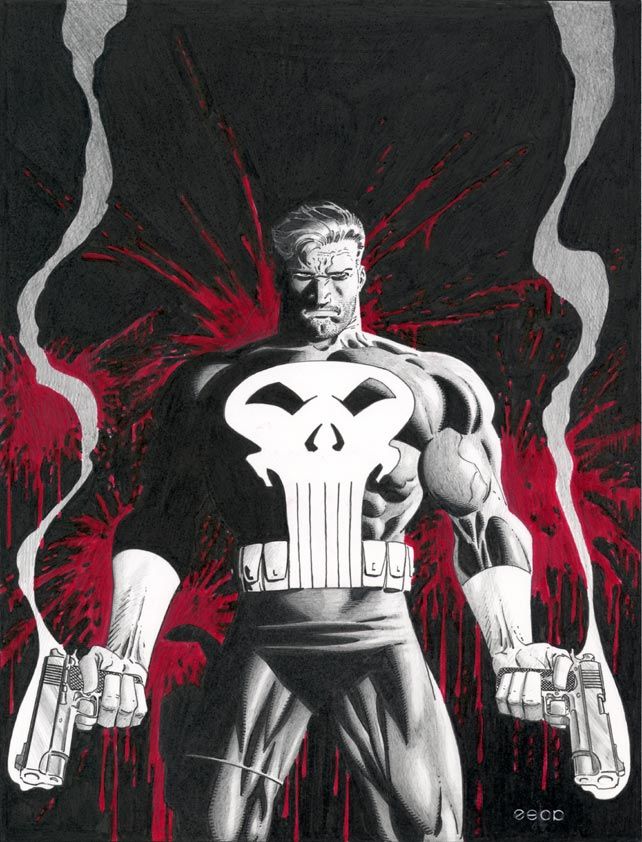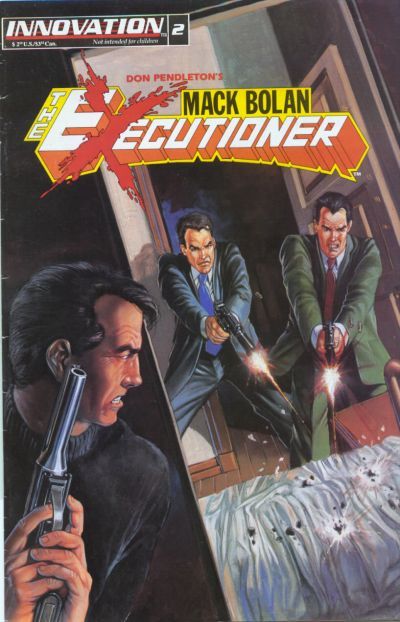Truthfully, I read hardly any comics this week. What I DID do was watch a lot of movies... that a lot of my favorite comics were stolen from.
Comics and movies have always had a vaguely symbiotic relationship, at least here in the U.S. Things that were fads in the movies often eventually ended up having a sort of ripple effect in comics, as well.
Especially B-movie, drive-in stuff.
Stan Lee was very matter-of-fact about it in his book Origins of Marvel Comics: if cowboys were big, you did a lot of Western comics. If monsters were hot, you saw a boom in monster comics. And so on.
What got me thinking about this was that, after thirty-some years of reading about it and seeing it cited as an obvious influence, I finally got to watch Enter The Dragon with Bruce Lee for myself.
It was a very nice restored edition with some extra footage edited back in, and I enjoyed it enormously; but what struck me about it was how much of it Marvel stole bag and baggage, back in the seventies. Or, let's say, paid homage to. Was influenced by. Whatever.
See if you don't agree: Bruce Lee is a martial arts master living a vaguely monastic life (I think he's supposed to be some sort of Shaolin monk, but I'm not sure) who's recruited by British Intelligence to infiltrate an evil warlord's island headquarters. How familiar is that?
Now, of course, we all knew that Shang-Chi was basically Sax Rohmer's Fu Manchu novels fused together with Bruce Lee movies, but I'd had no idea how MUCH of the concept had been stolen specifically from Enter the Dragon. Bruce Lee's character in the movie practically IS Shang-Chi. And his uneasy alliance with wisecracking pal Roper (John Saxon) echoes, in many ways, Shang-Chi's give-and-take with Clive Reston.
You could make the case that Mei Ling, an Asian female agent already on the island that Bruce Lee has to rescue, is the model for Leiko Wu. And so on.
Now, none of this diminishes the work that Doug Moench and Paul Gulacy put into Master of Kung Fu. It's one of my favorite books and is easily one of the best things to come out of Marvel in the seventies -- maybe one of the best things to come out of Marvel ever. Still, I was surprised to see how many parallels jumped out at me while I was watching Enter The Dragon. And it's not just the kung-fu-meets-James-Bond plot. The film's dialogue, the structure, the pacing... it's all echoed in the comic book.
It really does feel like Shang-Chi: The Movie.
It was to the point where I was wondering if the actor who played Braithwaite, the British spymaster who recruits Bruce Lee, was actually the visiual model for the comics version of Sir Denis Nayland-Smith. It was that close. It's almost as if the entire run of Master of Kung Fu is a sequel-to/expansion-of the film.
Or, looked at another way, Enter The Dragon was a movie about three guys that fight crime -- a black guy, a white guy, and an Asian guy, all three of them martial-arts masters. Marvel picked up on that premise, too.
I think the only reason Sons of the Tiger morphed into something so different was because nobody who worked on it knew anything about martial arts.
Likewise, everyone knows Luke Cage has his roots in blaxploitation movies.
I'd always assumed Luke was basically "Shaft with superpowers".....
...but that was before I heard about Black Belt Jones.
This is a movie that I lust to own, despite it being included in The 50 Worst Films of All Time.
Jim Kelly leapfrogged off Enter the Dragon to a minor movie career of his own, and Black Belt Jones was his opus -- it even actually spawned a sequel.
Certainly, Marvel was aware of Jim Kelly's popularity, and he was a frequent subject of the articles in Deadly Hands of Kung Fu.
Luke Cage wasn't a martial arts character, of course. But if you saw the movie I think you'd see a certain similarity, particularly in the way Black Belt Jones is a champion of the underdog, defending the good people of the ghetto...
....generally while inflicting a lot of property damage.
I won't go so far as to suggest one came from the other -- for one thing, the dates don't exactly match up, though I do think Jim Kelly's film persona influenced Hero for Hire to some degree, especially when Don McGregor was on the book. Let's just say that if you are a fan of the original run of Luke Cage's book, then Sweet Christmas! but you will love this movie.
We've also been watching a lot of old Hammer films this week.
And again, I'm noticing -- well, not so much anything that was directly stolen and put into a comic book, but more of... I guess you'd call it a vibe, a sensibility.
Hammer movies feel like comics. No matter what the studio was putting out, no matter the source material, a Hammer production had a certain way of doing things and a brand-name familiarity.
That comfortable sense of knowing exactly what you're getting into was very similar to what the Marvel Comics house style of the late 60's and early 70's felt like. If it said "A Hammer Film Production," you knew you were in for a wild ride that would last about 90 minutes, heavy on the action, thrills, and chills; hot chicks, evil monsters, a good time to be had by all. My wife Julie claims to hate scary movies, but even she views the Hammer oeuvre with affection.
Certainly, you could find attempts to re-create that same Hammer horror vibe in comics, but oddly enough, Marvel never had much success with it.
None of their magazine-sized horror books ever really took off. It's a shame, really, there was a lot of good work there.
You can find a fair amount of this stuff in the Essential reprint books collecting Tales of the Zombie and Monster of Frankenstein, but there's a lot left. I would be SO ALL OVER an Essential Monsters Unleashed and an Essential Vampire Tales.
God willing, Marvel will get around to it. I think the other horror-themed Essentials have done pretty well for them.
And of course there was the Warren output. Really I think the closest anyone got to the sense of a Hammer horror film in comics was Vampirella.
Today the Hammer films themselves are having a bit of a renaissance on DVD; there are some wonderful new collections with lots of cool extras and commentaries, particularly the films starring Christopher Lee.
Nosing around the internet, doing research -- I discovered there are as many or more sites devoted to horror movies as there are to comics -- I found a couple of items of interest. The big place I wanted to direct you to was Hammer Horror Posters, a website dedicated to the awesomely cool art used to advertise the films.
I assure you that if you have any interest in illustration art, you'll spend hours there. Something particularly rare and cool was an interview with artist Tom Chantrell, with lots of photos and original art scans. As is so often the case, you may not know the name but I am certain you've seen the work. I love finding out the names of these guys and seeing what they have to say; their stuff is so pervasive, much more widely seen than the work of fine artists, and yet almost no one except aficionados ever know their names.
Especially interesting to me was the discovery that, quite a lot of the time, Hammer would commission a poster and then go ahead and secure a distribution deal and attach a star afterwards, based on nothing more than the visual. As a result, there were quite a few unused posters and artwork for movies that never got made, and the site has many of them on display.
Anyway, I cribbed a lot of the art for this week's column from there so I figure I should at least give them a plug. There are also a lot of books about the history of Hammer and you can take your pick. Personally I rather like this one --
-- The Hammer Story, by Hearn and Barnes. It's the best of a long line of history books about the Hammer horror movies. There's also a British documentary television series, episodes of which are occasionally included as DVD extras on the films they discuss.
None of this is all that relevant to comics, of course, but I figure if you've gotten this far you'd probably be interested. There seems to be a lot of overlap between readers of this column and devotees of B-movies.
*
Probably the single biggest exploitation-crossover-ripoff-success in comics didn't actually come from the movies -- it was stolen from a series of paperback originals.
Mack Bolan was a Vietnam veteran who, when his wife and child were murdered by mobsters, embarked on a one-man war against the Mafia.
These were enormously popular books and the series is still going strong, I believe, though today I think the Executioner's targets of choice are Islamic terrorists.
You know where I'm going with this, I'm sure. In the 70's Gerry Conway thought a Mack Bolan-type villain would be fun to use in Spider-Man, and the rest is history.
The Punisher was a late bloomer; he didn't really hit it big until the 90's. But once he hit, he hit HUGE.
After starring in a dozen or so comics titles, hundreds of guest appearances, and even a couple of movies, the Punisher is one of Marvel's heavy hitters today. You pretty much have to be a geezer like me to still make the Mack Bolan connection at all.
As it happens, Bolan himself had a brief -- VERY brief -- comics career. The book was even co-scripted by Don Pendleton, the creator of the novel series.
Innovation did three issues before, sadly, going bankrupt. You can read more about it and see some sample pages at Don Pendleton's web site.
Oddly, Mack Bolan never had a movie version made, despite all his success in print. I can't imagine, after all these years, that Pendleton or his heirs didn't at least try and pitch one.
Probably the studio people said he was ripping off the Punisher. Which is, kind of, where we came in. It's the circle of life.
See you next week.


